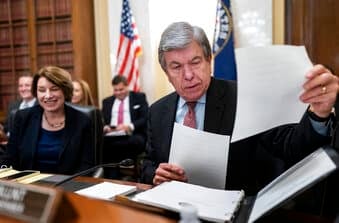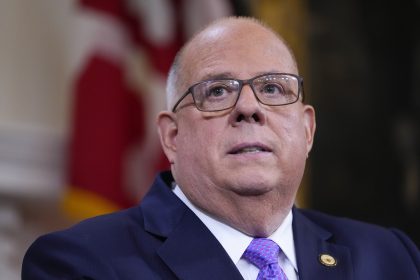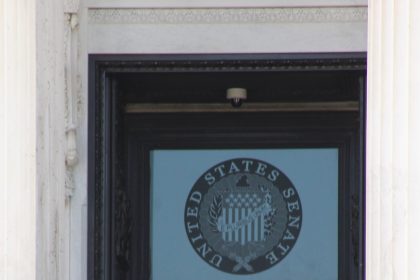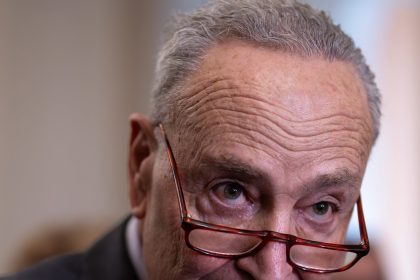Election Reform Bill Headed to Final Vote Amid Bipartisan Senate Support

WASHINGTON — A Senate committee on Tuesday voted to send a proposal to a final vote that seeks to avoid the kind of disputes that led to the Jan. 6, 2021, insurrection at the U.S. Capitol.
The rioters were trying to prevent the transition to the Biden administration after former President Donald Trump alleged voter fraud made him lose the presidency.
Trump’s authority to challenge the election appeared to be rooted in uncertainties of current federal law, specifically the Electoral Count Act of 1887.
“It’s vague, outdated and needed reform,” said Sen. Roy Blunt, R-Mo., who co-sponsored the reform proposal. It is called the Electoral Count Reform and Presidential Transition Improvement Act, S. 4573.
It was marked up and sent to the Senate for a final vote by the Senate Rules and Administration Committee with only one dissenting vote, indicating it is nearly certain to pass into law soon.
The House passed a similar election reform bill last week.
Congress approved the Electoral Count Act of 1887 after a series of disputed federal elections.
It sought to minimize congressional disputes by turning much of the authority over elections to each state. It set procedures for states to resolve election disputes, certify results and send them to Congress.
It also authorized the vice president to avoid election certification if there appeared to be a problem with it. It allowed as few as two federal lawmakers — one from the Senate and one from the House — to force a congressional vote on the validity of the election.
Members of Congress have officially objected to vote tallies in four of the last six presidential elections.
Trump used what appeared to be loopholes in the 1887 law to unsuccessfully pressure former Vice President Mike Pence not to certify the election. He and his supporters also contested the state elections through 65 lawsuits, all of which failed.
The reform bill “raises the threshold” to challenge elections, Blunt said.
The vice president would serve only a ministerial role in certifying elections, rather than having authority to block the certification. In addition, at least 20% of federal lawmakers would need to join in contesting the accuracy of the vote count before a presidential transition could be halted.
Other provisions revise the process of casting and counting electoral votes for presidential elections and give greater certainty to procedures for the transition between administrations.
One of the authors’ goals was to prevent a single political party from influencing the transition, or what Rules and Administration Committee Chairwoman Amy Klobuchar, D-Minn., called “political gamesmanship.”
“The peaceful transfer of power that is at the center of our democracy was at stake” during the Jan. 6 insurrection, Klobuchar said.
The Electoral Count Reform and Presidential Transition Improvement Act also would help to prevent disputed elections from being decided by the Supreme Court, she said.
The lone dissenting vote came from Sen. Ted Cruz, R-Texas, who said the bill would undercut what is supposed to be the authority of states over elections.
“This bill is Congress trying to intrude upon the authority of state legislatures,” Cruz said.
He added, “This bill is all about Donald J. Trump.”
His objections were unlikely to prevent passage of the reform bill after both Senate Majority Leader Chuck Schumer, D-N.Y., and Minority Leader Mitch McConnell, R-Ky., said they endorse it.
Tom can be reached at [email protected] and @TomRamstack























